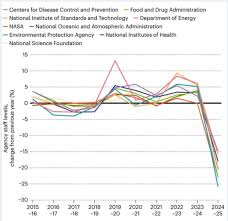The Right-Wing Noose Tightens on Recess Appointments
Republican judges are continuing to do their best to hamstring the Obama Administration: six days ago, the Third Circuit joined the DC Circuit in restricting recess appointments to intersession recesses. Intrasession recesses, which, as the Court noted, were made routine under Ronald Reagan and used nearly 150 times by George W. Bush, are now unavailable. (The name of the case is NLRB v. New Vista Nursing & Rehabilitation). Although it’s always hazardous to make predictions, I think that the odds are now that we will not see an EPA Administrator until the end of December (if then) unless Democrats finally lose patience with continuing GOP obstruction and reform the filibuster.
The Third Circuit’s opinion is a wonderful piece of judicial activism. At its heart, it essentially says that the recess appointment power should be construed as narrowly as possible because it represents an end run around the balance of powers between Congress and the President. It freely concedes that nothing in the text or history of the notion of a Senate “recess” dictates this result, but that somehow allowing intrasession recesses would endanger the balance between Congress and the President, and would yield an absurd result. Apparently, the record-breaking use of the filibuster by Republicans is not absurd, and presents no problem. The fact that Presidents have been making intrasession recess appointments for a century is irrelevant as well. Republican threats to block the appointment of executive officers unless statutes are rewritten also is no cause for concern. Presidential attempts to circumvent these tactics through the use of recess appointments, however, constitutes a threat to the Republic. It’s a theory.
The Obama Administration is partially to blame for this mess. It insisted on appointing members of the National Labor Relations Board when the Senate was actually in session. Senate Democrats wanted to recess, but House Republicans refused to concur — a first, in my recollection. And the administration, instead of using the President’s power under Article II, Section 3 to settle the disagreement, went ahead with the bizarre notion that the Senate is in recess even when it is holding pro forma sessions. This represents an excellent example of the combination of hyper-risk-aversion, irrationality, cowering, and aggrandizement that has come to characterize its legal policy, particularly surrounding appointments.
Two points are in order now:
1) In typical fashion, the Third Circuit split on partisan lines, with two GOP appointees voting to strike down the recess appointment power, and the Democratic appointee voting to uphold. The two GOP judges do not seem to be extreme partisans, and have no track record (as far as I can tell) of ideological rulings, unlike their counterparts on the DC Circuit. But that is part of the point. We now live in a world where positions that seemed crazy just a few years, or even several months, ago, are now seen as unremarkable if you are on one team or another, particularly if that team is the Republican Party. There is almost no common ground between the parties on the most basic matters. In any political community, that is scary; in a democracy, it is genuinely perilous; in a constitutional system like ours that requires a certain amount of consensus, in Jefferson’s words, it “makes me fear for my country.”
2) Over at Volokh, my old law school classmate John Elwood has some thoughtful reactions to the opinion. John argued during the Bush Administration that intrasession recess appointments were constitutional; he has the integrity and common decency not to repudiate that now. But one of his comments seems a touch questionable to me: “Whatever the odds were that the Supreme Court would deny cert. in Noel Canning v. NLRB [the DC Circuit opinion striking down intrasession recess appointments] – and I’d say they were small to begin with — they just got smaller today.” I’m not so sure. The rational thinker in me says that given the cloud of uncertainty over federal agencies, the circuit split, and the major constitutional issues involved, there is no way that the Supremes don’t grant cert. On the other hand, I can easily see the five right-wing justices decide that they will let the Obama Administration suffer, and when a Republican gets back into the White House, they can deal with it then. The four centrists can force their hand, but then the Furious Five can simply dismiss the case as improvidently granted. I wouldn’t say that that will happen, but in our current political culture, it’s a distinct and reasonable possibility. If it happens, you heard it here first.







Reader Comments